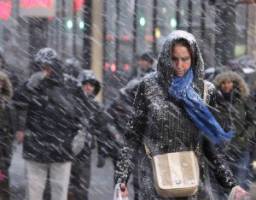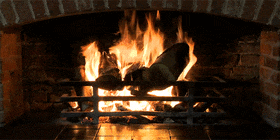Вход / Регистрация
22.12.2024, 23:31
Главная » 2015 Июнь 26 » Britain faces FREEZING winters as slump in solar activity threatens 'little Ice Age'
13:19 Britain faces FREEZING winters as slump in solar activity threatens 'little Ice Age' |
 BRITAIN could face colder than average winters with a plunge in solar activity threatening a new "little ice age" in the next few decades. Climate experts warn the amount of light and warmth released by the sun is nosediving to levels "not seen for centuries". They fear a repeat of the so-called 'Maunder Minimum' which triggered Arctic winter whiteouts and led to the River Thames freezing 300 years ago. The Met Office-led study warns although the effect will be offset by recent global warming, Britain faces years of unusually cold winters. A spokesman said: "A return to low solar activity not seen for centuries could increase the chances of cold winters in Europe and eastern parts of the United States but wouldn't halt global warming. "Return of 'grand solar minimum' could affect European and eastern US winters." Long episodes of low solar activity were seen during the Maunder Minimum between 1645 and 1715 and the 'Dalton Minimum' from 1790 to 1830. Both periods coincided with colder-than-normal global temperatures earning the title from scientists of "Little Ice Age." The latest study, published in Nature Communications, found reduced solar activity will lead to an overall cooling of the Earth of 0.1C. A much bigger cooling effect is expected for Britain, northern Europe and North America where thermometers could drop by 0.8C. Amanda Maycock, of the University of Cambridge and National Centre for Atmospheric Science, said: "It's important that we consider the potential impact of changes in UV output when looking at future climate." Met Office scientist and lead author Sarah Ineson, said: "This research shows that the regional impacts of a grand solar minimum are likely to be larger than the global effect. "This study shows that the sun isn't going to save us from global warming, but it could have impacts at a regional level that should be factored in to decisions about adapting to climate change for the decades to come." Met Office long-range expert professor Adam Scaife said solar activity has already started to decline over the past few years. He said: "Although the effect on global temperatures is very small, the local effect is big enough to make a difference and we need to include that in our future climate projections." He said if "factors come together", severe winters like the 2009/10 chiller which crippled Britain could become more frequent. He warned early signals point towards a period of minimum solar activity by the middle of this century. "There is a high chance that solar activity of the sun will decrease over the next few years," he said. "There is a chance of a repeat of the Maunder Minimum period where sun spots completely vanish, there are already some signs of this. "This can change the amount of ozone in the atmosphere over the tropics and a weakening and southwards shift of the jet stream, in winter this leads to colder conditions. "There were many factors which triggered the winter of 2009/10 and this could have been one of them. "We might get another year when all these factors come together again, in any case there is an increased risk of colder winters." James Madden, forecaster for Exacta Weather, said the effects may be felt as soon as this winter. He said: "Solar activity levels, or solar flux, are currently estimated to be at their lowest for the last 100 years. "We will head into another rapid decline throughout the remainder of the upcoming year. "On the basis of past solar activity levels it is an inevitability that solar and sunspot activity will continue to fall off the charts in the coming years and decades, including the upcoming winter period of 2015/16." The coldest winter ever recorded in 1684 occurred during the last Maunder Minimum period and saw the River Thames in London freeze over. Maunder Minimum is named after the English astronomer Edward Walter Maunder who noticed fewer sunspots were observed between 1645 and 1715. Sunspot activity peaks and troughs with roughly an 11-year cycle, activity has been dipping over the past decade. Professor Scaife said: "During the Mander Minimum period there were runs of cold winters including 1684 which was the coldest winter recorded. "There are signs that solar activity has been dropping over the past decade with a one in five chance of it reaching a similar low by around 2050." |
| Категория: Climate | Просмотров: 1190 | |
| Всего комментариев: 0 | |



